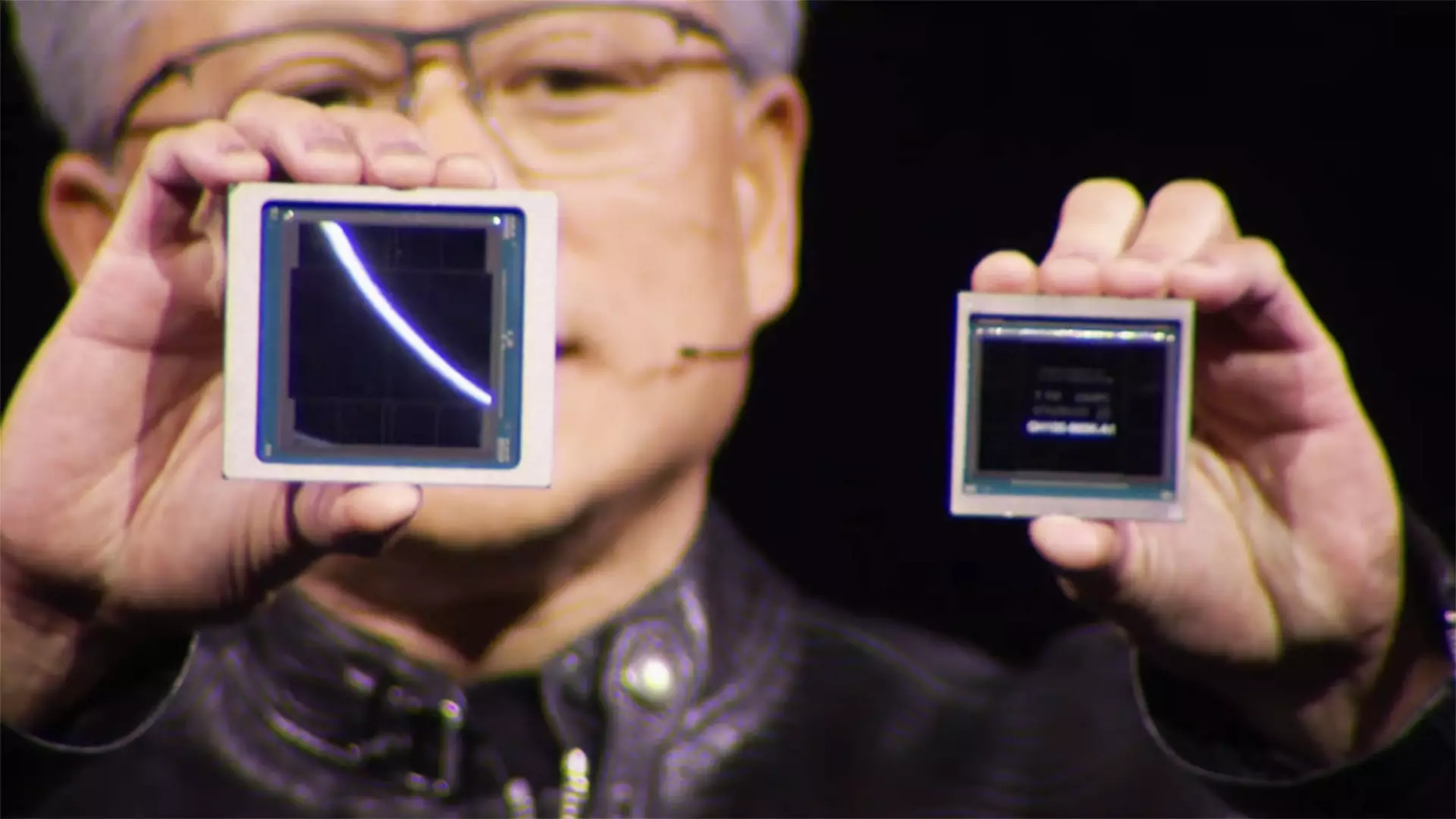In recent months, the landscape of artificial intelligence (AI) research has evolved dramatically, particularly in the context of geopolitical tensions between the United States and China. Nvidia, a leading technology company at the forefront of AI hardware and software solutions, has expressed significant concern regarding the U.S. government’s restrictions on chip exports to China. These regulations have not only impacted Nvidia’s market accessibility but have also inadvertently fueled a brain drain of exceptional AI talent towards Chinese companies, particularly Huawei. This shift has broader implications that extend beyond corporate profits, touching the very core of innovation in the technology sector.
The narrative that Nvidia’s experts are weaving suggests that the curtailment of exports is directly correlated with an upsurge in domestic AI research in China. Bill Dally, Nvidia’s chief scientist, has pointed out that the number of AI researchers in China has escalated alarmingly, from one-third to nearly half of the global total in just a few years. This alarming trend stems from China’s need to innovate under pressure, leading firms like Huawei to aggressively recruit former Nvidia researchers. This situation starkly illustrates the domino effect of export restrictions, which foster a thriving domestic AI industry in countries that are perceived adversaries.
Nvidia’s Concerns: Financial Implications and Competitive Threats
Beyond the ethical implications of a talent shift, there’s a pressing financial angle that Nvidia cannot ignore. The company has reported staggering losses due to these export bans—billions of dollars were lost in the first quarter, with projections indicating an even greater financial hit in the upcoming quarter. The development of alternative chips by Huawei, such as the Ascend 910 and 920, poses a direct threat to Nvidia’s market dominance in AI hardware. As these alternatives gain traction within China, there exists a palpable concern that Nvidia may lose not only current revenue streams but also future opportunities to capitalize on the burgeoning Chinese market.
This scenario paints a challenging picture for U.S. corporations, where diplomatic decisions have profound implications on business viability. Nvidia’s CEO, Jensen Huang, has openly articulated these problems, signaling a call to action for policymakers. He recognizes the dual-edged sword of trade protections that aim to safeguard national interests yet simultaneously jeopardize American technological leadership and innovation.
The Broader Technological Race: Implications for Future Innovations
The ongoing competition between U.S. and Chinese firms goes beyond immediate financial ramifications; it signals a long-term struggle for supremacy in technology that could dictate the course of global AI advancements. With Huawei reportedly enhancing its prowess with ex-Nvidia talent, the Chinese tech giant stands poised to unearth innovations that could close the gap with their U.S. counterparts or even leapfrog them.
The implications are clear: as global tensions rise, so too do the stakes of technological competition. The risk of a bifurcated tech ecosystem looms where two distinct camps—U.S. and China—operate based on divergent philosophies of innovation, ethics, and security. This fragmentation threatens to hinder collaborative progress within the AI field, which thrives on shared advancements and open knowledge.
Ethical Considerations and The Future of AI Collaboration
In parallel with the technological ramifications of these developments lies an ethical dilemma about the direction of AI research. A rich tapestry of collaboration and knowledge-sharing has historically allowed for rapid advancements. However, an increasingly adversarial approach could sever the networks that have allowed for diverse perspectives in AI development. Narrowing the avenues through which global talent can collaborate diminishes the pool of ideas, potentially stalling progress rather than accelerating it.
Moreover, if American firms like Nvidia inadvertently incite protective stances that drive talent to rivals, the industry risks entrenching itself in a cycle of reactivity rather than fostering proactive innovation. This self-inflicted wound illustrates a real-world example of how geopolitical strategies can stifle creativity and evolution in a critical field driving profound changes in society.
While Nvidia’s current stance on U.S.-China trade relations highlights immediate financial concerns and the competitive landscape, it also serves as a poignant reminder of the interconnected nature of global innovation ecosystems. As companies and governments navigate this complex terrain, the focus should shift towards strategies that promote collaboration instead of division to safeguard the future of AI development worldwide.

